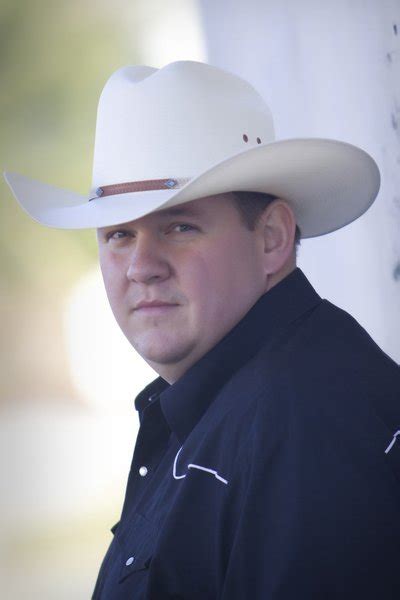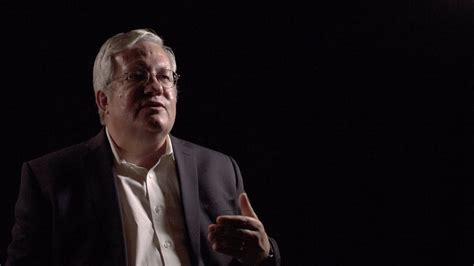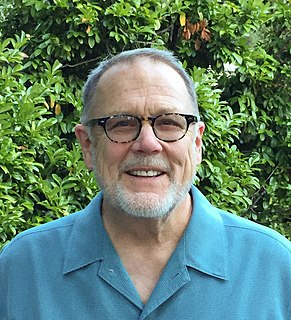A Quote by Michael Yates
Life as we know it is fundamentally unsatisfying. I think most folks feel this to be true. They know that a life of aimless consumption isn't much of a life. And work offers us very little satisfaction. Plus our work and consumption is destroying the environment. And this is in the rich countries. Add starvation, etc. to the mix, and you have a lot of people in the world pretty unhappy with things as they are. Modern communications make all of this known to people far and wide, and we see the fundamental unfairness of it all.
Quote Topics
Add
Aimless
Be True
Communications
Consumption
Countries
Destroying
Destroying The Environment
Environment
Etc
Far
Far And Wide
Feel
Folks
Fundamental
Fundamentally
Know
Known
Life
Little
Lot
Make
Mix
Modern
Modern Communication
Most
Much
Offers
Our
People
Plus
Pretty
Rich
Rich Countries
Satisfaction
See
Starvation
Things
Think
True
Unfairness
Unhappy
Us
Very
Wide
Work
World
Related Quotes
I shall argue that it is the capital stock from which we derive satisfaction, not from the additions to it (production) or the subtractions from it (consumption): that consumption, far from being a desideratum, is a deplorable property of the capital stock which necessitates the equally deplorable activity of production: and that the objective of economic policy should not be to maximize consumption or production, but rather to minimize it, i.e. to enable us to maintain our capital stock with as little consumption or production as possible.
It was only in the late nineteenth century and then the twentieth century, with the maturation of consumer capitalism, that a shift was made toward the cultivation of unbounded desire. We must appreciate this to realize that late modern consumption, consumption as we now know it, is not fundamentally about materialism or the consumption of physical goods. Affluence and consumer-oriented capitalism have moved us well beyond the undeniable efficiencies and benefits of refrigeration and indoor plumbing.
I would love to just have the work do the talking. We're in positions where people ask us questions; they want to know about more than just the work. And it can go into areas where I've completely shot my mouth off, whether it's too much about my private life or being too opinionated about things in the world. I think the better thing to do - I've learned this from people far wiser than me - is to do very good, quiet work behind closed doors.
If the level and amount of consumption and waste of the western rich countries ever reaches the poor countries, it will mean the end of humanity. The big world corporations are busy doing it...The production, selling, consumption, accumulation, wastes' and advertisement explosions in the western rich countries and the continued population explosion in the poor countries will turn into major catastrophes.
We aren't defined by our work. People think if you over-identify with your work, then that must mean you're giving over too much of yourself to it, that there's something wrong with that. We're trained to believe in things like work-life balance. So much work is tending towards service. It's very much about creating experiences rather than products, and it makes those boundaries between life and work very slippery.
The public interest always surprises me. I come to work in these rooms with no windows. At night I go home. I just live my life. I guess I just don't think much about whether people are going to watch. Most of my friends don't know much about what I do, and we don't talk about it. I have a different life away from work. Which is fine, because my work can get pretty intense.
The natural environment is not particularly hospitable to human life ... the key to having a good environment is improving it through work... . Energy is fundamentally an environmental improver and if we classify it that way it makes sense out of a lot of these controversies... . It's our obligation and our right to make [our environment] as good for human beings as possible. With that view, it's very easy for people to understand precisely the reason it's good to alter it - because it doesn't naturally come the way we need it to be.
Whole ideology of consumption almost to the point of religion. Whether it's the consumption of entertainment or the consumption around buying things, we're so caught up with our appetites that we don't have a clear distinction about what we need and what we just want. Plus, the decline of trade unions is a factor. When you have powerful unions, you have a working class that is politicized.
I train like I'm training for the Olympics or for a Mr. America contest, the way I've always trained my whole life. You see, life is a battlefield. Life is survival of the fittest... How many healthy people do you know? How many happy people do you know? Think about it. People work at dying, they don't work at living. My workout is my obligation to life. It's my tranquilizer. It's part of the way I tell the truth--and telling the truth is what's kept me going all these years.
These days, more than any other time, we are worried about our personal life, our private life. When we talk about our private life, it means our home, our body even. It seems that when we want to have calmness in this world, we make a wall around us. This gives us a very calm environment, and when we feel that somebody is intruding into that, it makes us very angry and we feel we have to do something about it.
Our environment, the world in which we live and work, is a mirror of our attitude and expectations. If we feel that our environment could stand some improvement, we can bring about that change for the better by improving our attitude. The world plays no favorites. It's impersonal. It doesn't care who succeeds and who fails. Nor does it care if we change. Our attitude toward life doesn't affect the world and the people in it nearly as much as it affects us.





































